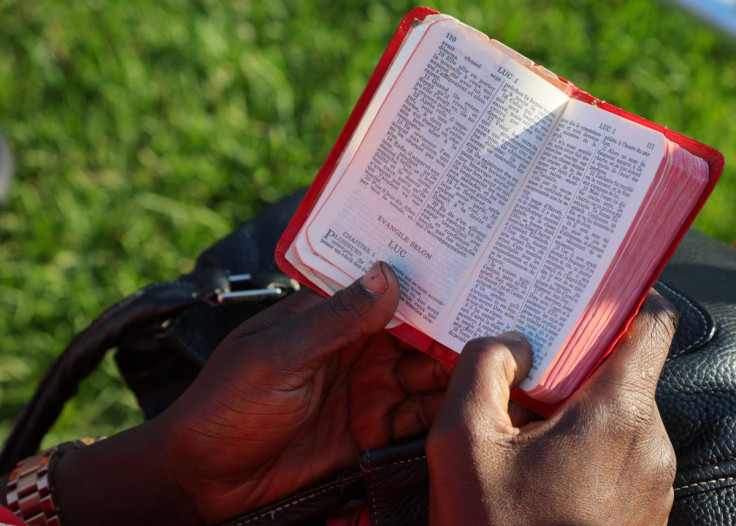Pope: Church Feels "burden Of Failure" Over Canada Indigenous Schools

Pope Francis on Thursday said the Catholic Church felt "the burden of failure" for its role in the running of government-backed residential schools that tried to wipe out indigenous cultures and where many children were abused.
On the penultimate day of his week-long apology tour of Canada, Francis presided at a Mass at the Basilica of Sainte-Anne-de-Beaupre in the town of the same name about 30 km (20 miles) outside Quebec City.
At the start of the Mass, some participants unfurled a banner asking him to formally rescind 15th century edicts, known as the doctrine of discovery, in which the papacy justified the taking of indigenous land in the New World.
The large banner was unfurled near the front row facing the congregation. They later took it down, and it was not clear if the pope saw what was written on it.
The oldest Catholic pilgrimage site in North America stands on the site where a small church was built in 1658 to house a statue of St. Anne that French colonists considered miraculous.
About a million people visit each year, many seeking cures from illnesses.
About three-quarters of 1,400 places inside the basilica were given to residential school survivors and other indigenous people while thousands of others watched the Mass on giant television screens outside. Overall, it was the biggest turnout since the pope arrived on Monday.
Psychological counselors were on hand in case of need by residential school survivors.
BURNING QUESTIONS
In his homily, the pope spoke of "the burning questions that this pilgrim Church in Canada is asking, with heartfelt sorrow, on its difficult and demanding journey of healing and reconciliation."
He continued: "Allow me to accompany you as a Church in pondering these questions that arise from hearts filled with pain: Why did all this happen? How could this happen in the community of those who follow Jesus?"
More than 150,000 indigenous children were separated from their families and brought to residential schools, which operated between 1870 and 1996.
Many were run by Christian groups for successive Canadian governments' policy of assimilation. Most were run by Catholic religious orders and survivors are seeking access to records the orders hold, mostly in Canada and at their headquarters in Rome.
The children were starved or beaten for speaking their native languages and many sexually abused in a system Canada's Truth and Reconciliation Commission called "cultural genocide."
The pope on Monday traveled to the town of Maskwacis, the site of two former schools, and issued a historic apology that called the Church's role in the schools, and the forced cultural assimilation they attempted, a "deplorable evil" and "disastrous error."
WORDS FALL SHORT FOR SOME
His pleas for forgiveness have evoked strong emotions for many but fell short of what some survivors and indigenous leaders had hoped for.
"I have heard directly from a number of leaders and members of indigenous communities that they would have hoped that he would go further, but at the same time, they felt some comfort in hearing his words," Prime Minister Justin Trudeau said before entering the church.
"This is a step toward healing but obviously there is more to be done," he told CBC television.
Shortly after his arrival in Quebec City on Wednesday, Francis met with Trudeau and Governor General Mary Simon, who pointedly told him of the horrors of residential schools for indigenous that the Church ran for past governments. [L1N2Z81V5]
"As a dad, I can't imagine having my children being taken away. When my kids are crying, I can console them. When they're happy, I can share that feeling of joy with them," Trudeau said.
"But in residential schools, these children were alone and isolated in their pain and sorrow, far from their families and communities. And even worse, stripped of their language, their culture, their identity," the prime minister said.
The pope on Wednesday said the Church was "admitting our faults" and wanted to join civil authorities "to promote the legitimate rights of the native populations and to favor processes of healing and reconciliation" between indigenous and non-indigenous Canadians.
The pope leaves on Friday after a stop in the Canadian Arctic.
© Copyright Thomson Reuters 2024. All rights reserved.





















